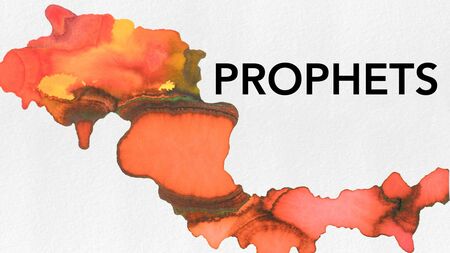.png)
This exploration of Isaiah's prophecy challenges us to examine where we place our trust in times of crisis. The ancient kingdom of Judah faced overwhelming threats from neighboring powers, and their kings were tempted to seek protection from mighty empires like Assyria and Egypt. Yet Isaiah's message was clear: trusting in worldly power always leads to disappointment and destruction. Instead, God offers a radically different kind of power—one that looks like vulnerability, humility, and even a child. This prophetic vision points us toward Jesus, whose greatest victory came not through military might but through death on a cross. We're invited to consider how often we, like the kings of old, turn to the wrong sources for security—whether technology, political power, education, or human institutions. These may offer temporary relief, but they ultimately fail or even turn against us. The profound lesson here is that God's power works differently than we expect. It doesn't look impressive by worldly standards, yet it's the only power that truly saves and never abandons us. As we navigate our own uncertainties and threats, we're called to trust in the God who reveals Himself through weakness and transforms darkness into light through His passionate commitment to His people.
In what ways do we as modern Christians find ourselves trusting in 'chariots and horses' rather than in God's power, and what would it look like to shift that trust?
How does the image of God's power manifesting through a vulnerable child challenge our cultural understanding of strength and effectiveness?
The sermon suggests that whenever the church has aligned itself with political or military power throughout history, it has lost its witness. Do you agree with this assessment, and what are the implications for the church today?
Isaiah warned that trusting in nations like Assyria or Egypt would ultimately lead to betrayal and destruction. What modern equivalents might we be tempted to trust in that could similarly fail us?
How can we discern the difference between wisely using resources like technology and medicine versus placing our ultimate trust in them instead of God?
What does it mean practically to trust in God when circumstances don't improve or even get worse, as they did for Jesus on the cross?
The prophet Isaiah called the people back from idolatry and pride to being 'a light to the nations.' How does misplaced trust prevent us from fulfilling that calling today?
Why do you think power tends to corrupt, and how can individuals and churches guard against this corruption while still engaging responsibly in the world?
The sermon mentions that God's deliverance looks like 'hammering swords into plowshares' rather than replacing one oppressor with another. What does this vision of peace mean for how we approach conflict and justice?
How can reading and meditating on biblical stories of trust help reshape our instincts when we face threats, uncertainties, or the temptation to seize control?


.png)